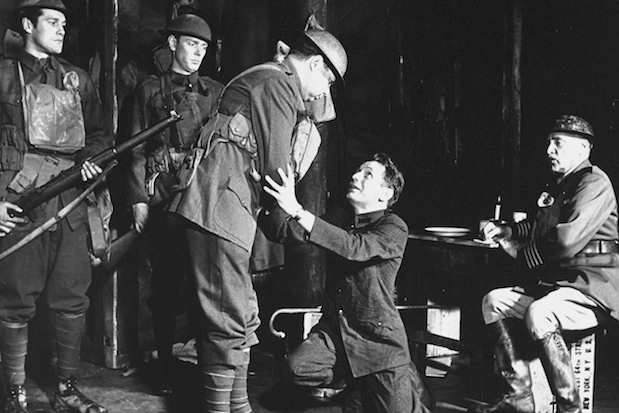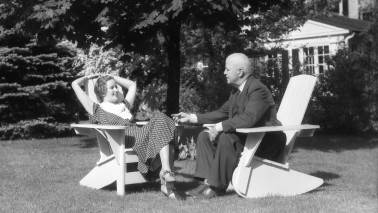‘You have no idea,’ wrote the publisher Ralph Hodder-Williams in 1929 to one of his authors,
what terrible offence Journey’s End has given — and terrible pain too, which is a great deal more important. I think you will agree that the chronic alcoholic was extraordinarily rare.
He was referring to R.C. Sherriff’s controversial tragedy of the trenches, which was then, 11 years after the war, enjoying an unexpected box-office success in the West End, where it played for nearly 600 performances.
Its success came as a surprise, not only because Sherriff (1896–1975) was an unknown writer, and exclusively male war plays were not particularly popular, but also because audiences were expected to sympathise with an unusual war hero. Stanhope is a young company commander, whose nerves by the time of the action are so shattered that he can only keep going with liberal doses of whisky. Hodder-Williams (a war veteran himself) was among those who dismissed this as sensational.
Army authorities, too, objected: they claimed that the play had seriously affected peacetime recruiting figures, contributing to a growing climate of disenchantment with military life. Its appearance, in the late 1920s, coincided with two of the greatest successes of first-world-war literature, All Quiet on the Western Front and Goodbye to All That. The message of these was that the war had been pointless, a colossal waste of young lives and built on deception. For many, Journey’s End seemed to say the same thing, with the tragic death of Lieutenant Osborne, a father figure to the youths surrounding him; with Stanhope’s alcoholism; and with the pathetic end of the boy-officer Raleigh, who had arrived at the Front with childish expectations of military glory.
Like much war literature in Britain that came after the Great War, however, the play’s attitude to the conflict was ambiguous.








Comments
Join the debate for just £1 a month
Be part of the conversation with other Spectator readers by getting your first three months for £3.
UNLOCK ACCESS Just £1 a monthAlready a subscriber? Log in